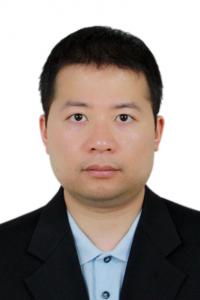Dr. Xing-Can Yao was born in Chong Qing, November 1983. He obtained the bachelor's and doctor's degree in 2006 and 2012, respectively, both in University of Science and Technology of China. He is now a professor of USTC . He is devoted to the experimental study of the fundamental quantum physics and quantum information processing with ultracold atoms and photons. He has achieved several experimental breakthroughs, including the realization of eight photon entanglement, demonstrating of topological quantum error correction, observation of coupled vortex lattices in a Bose and Fermi double superfluid, and etc. Both of these experiments have been actively discussed in many scientific meetings and reported in many scientific media such as Nature, Nature Physics, Physics world, technology review. Until now, he has published many papers on the high-profile journals, including 1 Nature, 3 Nature Photonics, 1 Nature Physics, 4 Physical Review Letters, and etc. His research work have been selected twice as the "China's top ten science and technology news" and "China's top ten scientific progress". His PhD thesis was awarded as "100 outstanding doctoral theses of Chinese Academy of Science".
Related Publications
- Antiferromagnetic phase transition in a 3D fermionic Hubbard model. Nature 632, 267-272 (2024).
- Observation and quantification of the pseudogap in unitary Fermi gases. Nature 626, 288-293 (2024).
- Solving independent set problems with photonic quantum circuits. Proceedings of the National Academy of Sciences of the United States of America 120, 1-8 (2023).
- Second sound attenuation near quantum criticality. Science 375, 528-533 (2022).
- Temperature-Dependent Decay of Quasi-Two-Dimensional Vortices across the BCS-BEC Crossover. Physical Review Letters 129, 163602 (2022).
- Universal Dynamical Scaling of Quasi-Two-Dimensional Vortices in a Strongly Interacting Fermionic Superfluid. Physical Review Letters 126, 185302 (2021).
- Degenerate Bose gases near a d-wave shape resonance. Nature Physics 15, 570 (2019).
- Coupled dipole oscillations of a mass-imbalanced Bose-Fermi superfluid mixture. Physical Review B 97, 020506 (2018).
- 30 W, sub-kHz frequency-locked laser at 532 nm. Optics Express 26, 33756 (2018).
- Feshbach spectroscopy of an ultracold K41−Li6 mixture and K41 atoms. Physical Review A 98, 022704 (2018).
